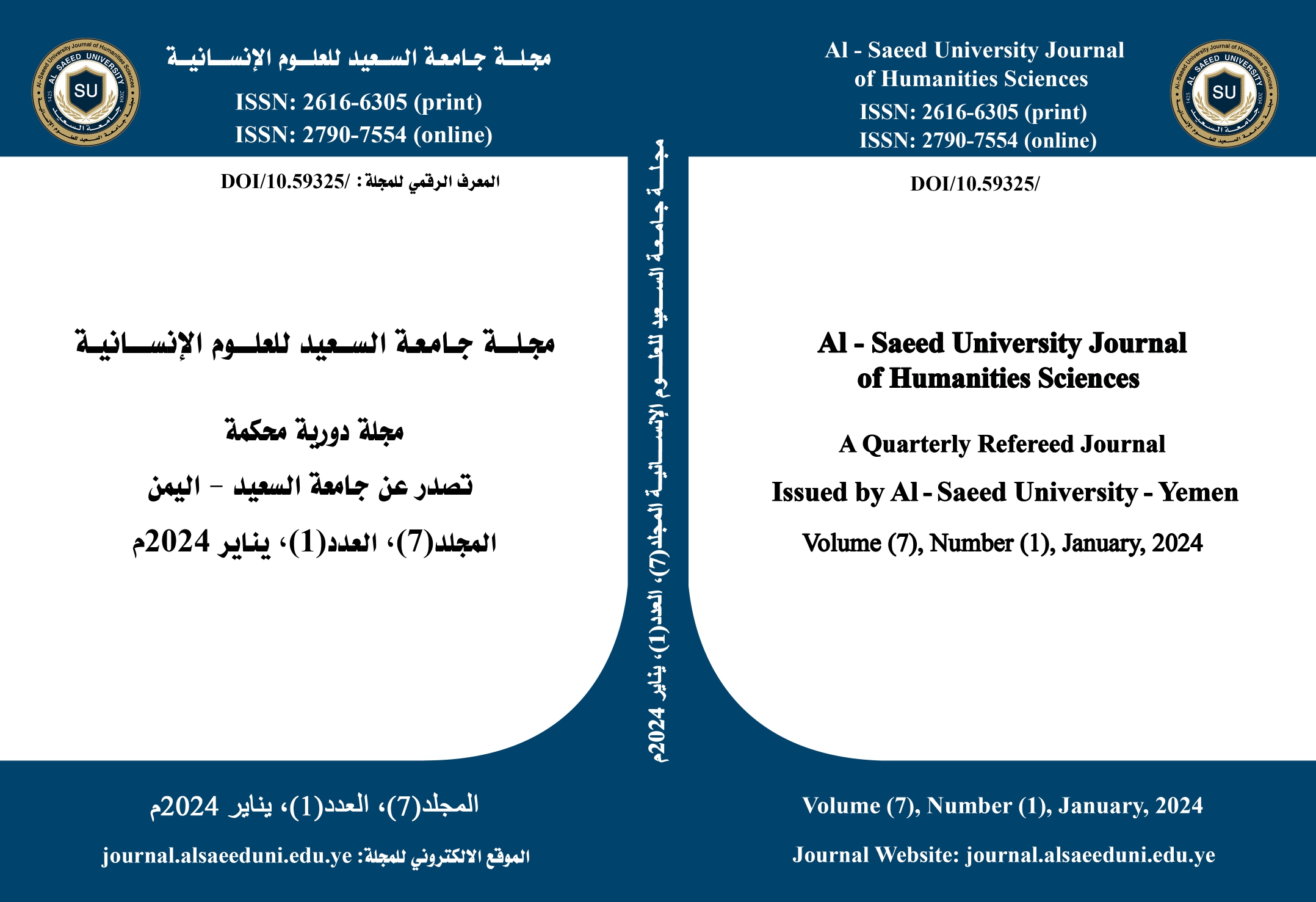He described the interpretative saying as strangeness in Al-Hafiz Ibn Kathir through his interpretation Analytical study
DOI:
https://doi.org/10.59325/sjhas.v7i1.207Keywords:
Ibn Katheer, Explanatory Saying, Description of the StrangenessAbstract
The researcher studied in these papers an issue related to the sayings of the interpreters put by Al-Hafiz Ibn Kathir - may God have mercy on him - in his interpretation with strangeness, and the research was organized in the introduction and three detectives and a conclusion.
As for the introduction, it dealt with the problem of research, previous studies, research methodology and procedures. Then the researcher deliberately explained the method of Al-Hafiz in his statement of strange sayings, and then added to explaining the reasons for the strangeness on which Al-Hafiz Ibn Katheer leaned in describing the explanatory saying with strangeness. He then went to the statement of the status of the strange saying by Ibn Kathir.
His research then concluded with the most important findings and recommendations, including:
First: The personality of Al-Hafiz Ibn Kathir is evident, especially in his description of explanatory statements with strangeness, and the urgent need to study that personality and highlight the critical approach.
Second: Al-Hafiz Ibn Kathir distinguished in presenting strange interpretative sayings, and explaining the reasons for the strangeness, whether related to the transmission and effect or to the evidence and the reasons for the descent, and the urging to collect these sayings and study them thoroughly.
Third: The disparity in the description and judgment of the strange explanatory saying when Al-Hafiz Ibn Kathir, and the call to compare this with the words of interpreters and investigators from the scholars.
Downloads
Published
How to Cite
Issue
Section
License
copyright is retained by the authors. Articles are licensed under an open access Creative Commons CC BY 4.0 license, meaning that anyone may download and read the paper for free. In addition, the article may be reused and quoted provided that the original published version is cited. These conditions allow for maximum use and exposure of the work.



